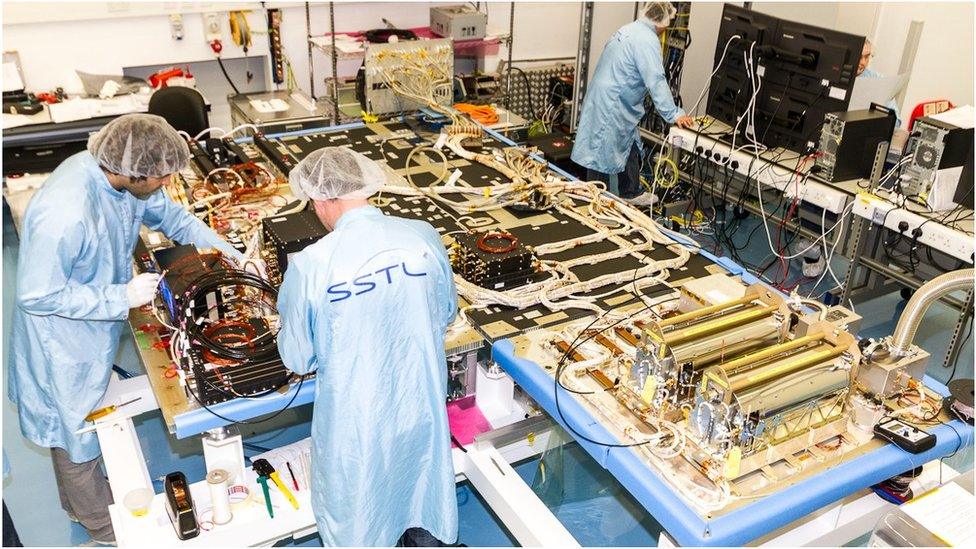EU's Galileo satellite system goes live after 17 years
- Published
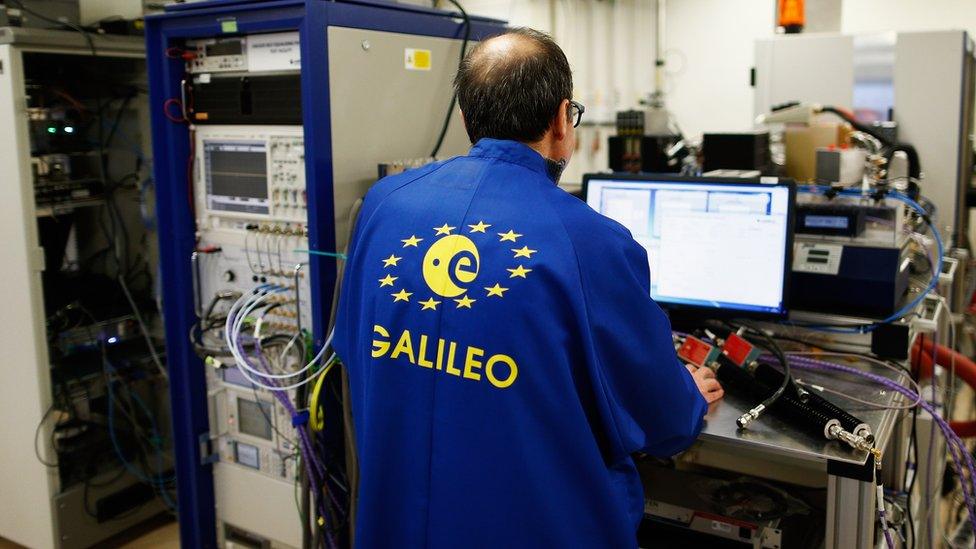
The Galileo programme has suffered delays and budget overruns, but hopes to increase satellite accuracy 10-fold
The EU's Galileo satellite system has gone live, aiming to supply the world's most accurate satellite navigation technology.
It follows 17 years of development, plagued by delays and budget increases.
The 18 satellites initially launched will be of only limited use at first for smartphones and in-car systems.
But officials hope the system will eventually provide greater location accuracy than either the US or Russian military services.
As the programme went into operation, European Commission officials signed contracts with technology companies to provide the microchips that enable applications to use Galileo information.
Vice-President of the European Commission Maros Sefcovic said Galileo would increase geo-location precision 10-fold - to within one metre compared to the current US-controlled Global Positioning System (GPS), which is accurate only to within several metres - when it becomes fully operational in 2020.
He said it would "enable the next generation of location-based technologies; such as autonomous cars, connected devices, or smart city services".
"Today," he added, "I call on European entrepreneurs and say: imagine what you can do with Galileo - don't wait, innovate!"

Europe's Galileo system
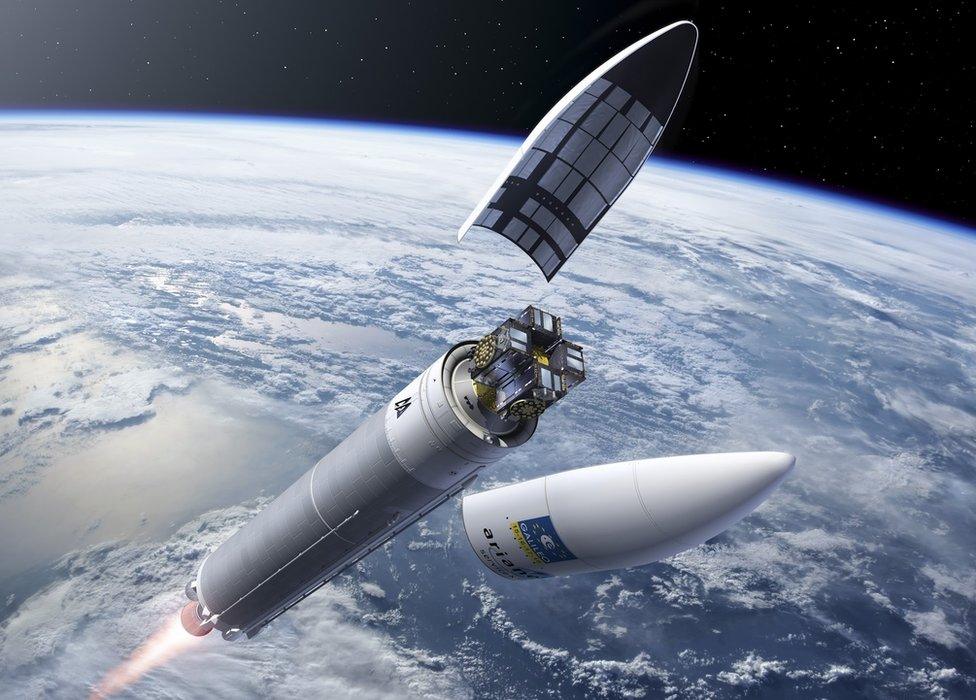
Artwork: Galileo satellites are now launching on Europe's premier rocket, the Ariane 5
A project of the European Commission and the European Space Agency
24 satellites constitute a full system but it will have six spares in orbit also
Spacecraft have been launched in batches of two, but now go four at a time
Will work alongside the US-owned GPS and Russian Glonass systems
Promises eventual real-time positioning down to a metre or less
Should deepen and extend high-value markets already initiated by GPS

Galileo was originally envisaged to be operational in 2008 with a budget of some €3bn (£2.5bn $3.2bn). It now seems set to cost about €10bn by 2020.
It was created by the EU Commission and European Space Agency, but numerous countries from outside Europe contributed, including India, Israel, Saudi Arabia and South Korea.
Until last month, all satellites launched to join the network went up on Russian Soyuz rockets, but the latest batch of four were delivered to orbit by Europe's premier vehicle, Ariane 5.
Six more satellites are planned for the full network.
The Commission hopes Galileo will bring significant returns to member-state economies in the form of new businesses that can exploit this better precision and the guarantees that will come with the new civilian-run service, says the BBC's science correspondent, Jonathan Amos.
- Published17 November 2016
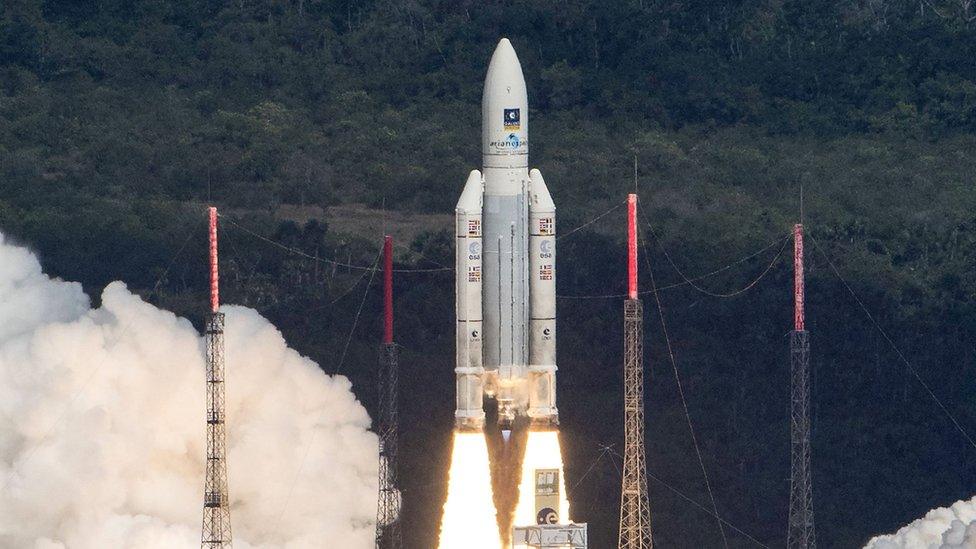
- Published16 July 2016
- Published24 May 2016
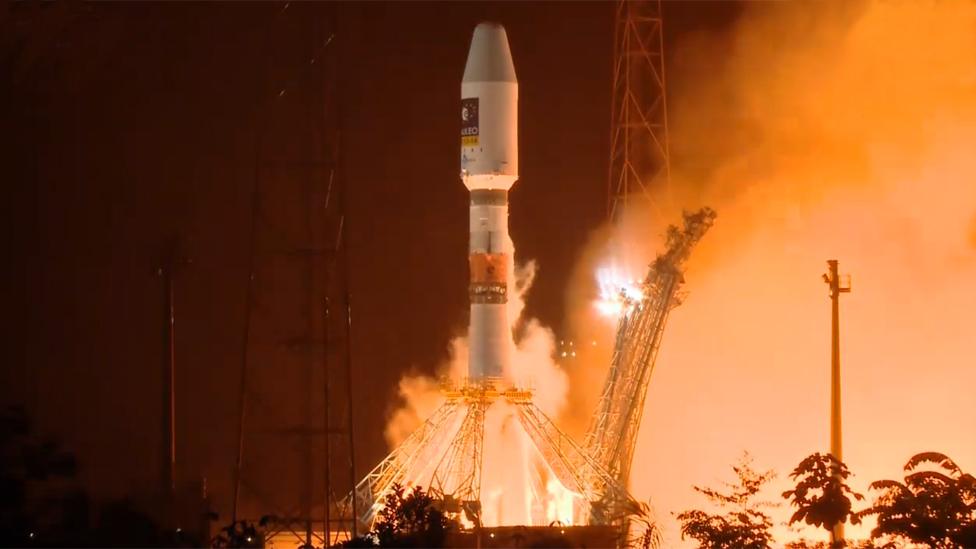
- Published13 May 2016
